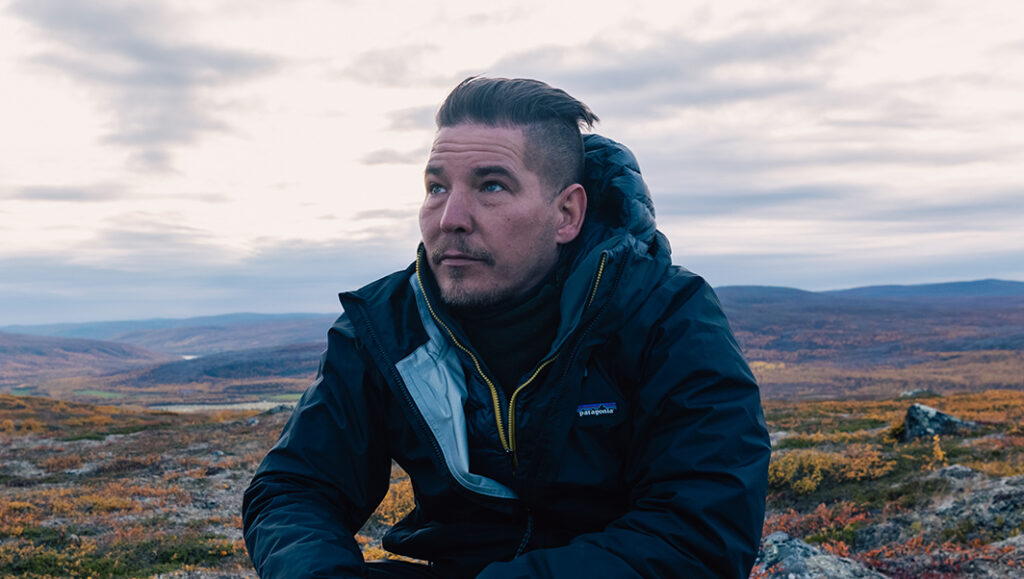Exclusive Interview: Writer-Director Jalmari Helander Talks Sisu

Jalmari Helander is a visionary storyteller who is best known for award-winning films including Rare Exports, Big Game, and Midnight Madness. His latest project, Sisu, is a visual masterpiece that’s quickly garnering Oscar buzz.
During the last desperate days of WWII, a solitary prospector (Jorma Tommila) crosses paths with Nazis on a scorched-earth retreat in northern Finland. When the Nazis steal his gold, they quickly discover that they have just tangled with no ordinary miner. While there is no direct translation for the Finnish word “sisu”, this legendary ex-commando will embody what sisu means: a white-knuckled form of courage and unimaginable determination in the face of overwhelming odds. And no matter what the Nazis throw at him, the one-man death squad will go to outrageous lengths to get his gold back – even if it means killing every last Nazi in his path.
Pop Culturalist was lucky enough to speak with Jalmari about Sisu, collaborating with his cast, and the challenges of filming on location.
PC: Your dream has always been to make an action film set in the wilderness inspired by your favorite ’80s films. Where did you draw inspiration from as you began to write Sisu?
Jalmari: First Blood was one of the biggest influences and all those classic Western films. It was a combination of all of those things but with a modern twist.
PC: Early on in the movie, it’s established that “sisu” is a difficult word to describe. Has there been a moment in your own life or career where you had to muster up courage and determination when all hope was lost? Did you channel any of those experiences into these characters?
Jalmari: Yeah, this project. [laughs] It has been eight years since I’ve done a film. Then the pandemic hit and everything went to sh*t. I felt awful. I thought I wouldn’t be able to do anything anymore and that I had lost everything. I was jealous, angry, and all those emotions. Then winter came, and there was so much darkness. I went into my office and I started writing this script.
PC: You’ve worked with some of these actors on your previous projects. As you were writing this story, did you have these particular actors in mind? How did knowing what they were capable of shape this narrative?
Jalmari: I immediately had Jorma [Tommila] in mind when I was writing it. When I came up with the first idea for the film, I knew I couldn’t do it with anyone except him. I knew exactly what I was going to get with him. He knows me very well. He understood what I was trying to achieve.
PC: The setting and environment are a character in itself. You all shot this on location. Why was that so vital to the filming experience?
Jalmari: I think that you need to go somewhere far away and in the middle of nowhere with the crew and actors to do something special. I don’t want anyone going home for the night with their families. It’s so much more fun. It gives more energy to the film when you’re doing this one thing and the only people that you are seeing are the people that you’re working with. It’s only a couple of months of your life where you’re squeezing everything you’ve got into your film. I really love that kind of moviemaking.
PC: There’s such unpredictability when you’re working on location and with animals. What was the biggest challenge that you faced on set?
Jalmari: I didn’t have any fun with the horses. I almost cried one day because a horse escaped. We found it like ten kilometers away from the mountains with our props and stuff. The horse had it on its back. We scattered all around the wilderness looking for it and lost a day of shooting because of it.
PC: The cast has talked at length about how clear you were with your vision. But I imagine as a writer-director you also want to leave room for actors to interpret the material. How were you able to find that balance, and what was it getting to collaborate with them on this project?
Jalmari: It works almost the same way every time. I have an idea of how I want to make it. I know the location well. I know the people well. But of course, every time you do a rehearsal of a scene you understand that there will be things that need to be changed. I’m always open to it. I always ask, “What do you think?” You want to change things to make it the best possible.
Sisu is in theaters now.
Photo Credit: Lionsgate


Discussion about this post